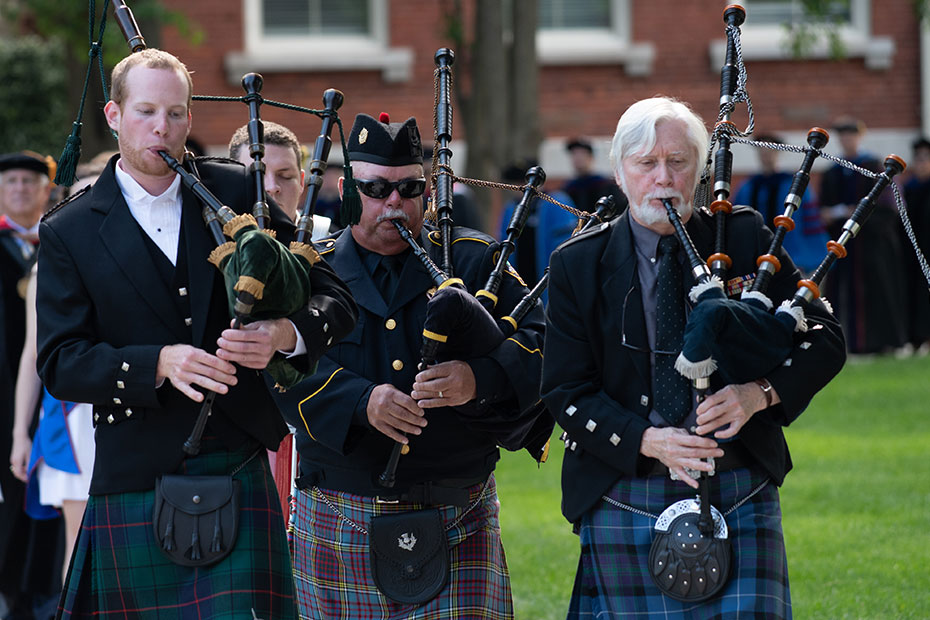Celebrating the bagpipes

The traditional way to start a pipe band is not, “one, two, ready, play,” says Gary Hipp, pipe major for PC Pipes and Drums. It’s by the right — quick march.
When the bagpipes are cued, it’s a signal that an important occasion or honoring is about to begin.
The Highland Bagpipes, which have military ties, play a role in the Presbyterian and Scottish culture. At PC, they are a symbol of the pride the community has in the institution and its history.
“The Presbyterian church has a long history of having pipers, and the pipes have been around for a long time,” Hipp said. “In Scotland, when the clan system arose, there would always be a hereditary piper. That piper’s job would be to celebrate weddings, deaths and births and to call people to the castle. It was an honor.”
At PC, an ensemble, which welcomes musicians from the College and the local community, has a repertoire designed for ceremonies like convocation and commencement or to get the football team on the field.
Hannah Owens ’11 and Marshall Davidson ’17 are two of several students who played in the piping program at PC.
They performed at PC ceremonies, many of which include a processional and recessional of bagpipes. Think “Highland Cathedral” and “Scotland the Brave.”
The program is one of the reasons the alumni say they chose PC.
“The bagpipe program brings a whole special subculture to PC and is representative of the college’s obvious Presbyterian roots,” Owens said. “It’s also very unique, as I’m sure you can imagine. Not many other schools in South Carolina, if any, have a similar program. It provides students with the opportunity to stand out in the musical crowd if that is their desire.”
Owens said word about the piping program reached her ears before she even applied to PC, because both of her parents, Dr. Ron and Beverly Davis, work in the Music Department.
She had not played the instrument before but was intrigued listening to punk rock bands like The Real McKenzies that featured bagpipers when she was in high school.
Owens remembers starting with the practice chanter in her lessons with Hipp. The most significant benefits in playing to her, she says, included Hipp’s guidance as well as the ability to express herself through a musical instrument.
Davidson is also grateful for being able to work with Hipp. His family connection to pipes comes from his Scottish heritage, and he started working with the program during his senior year of high school.
“It was my grandfather’s wish for one of his grandchildren to learn to play bagpipes, so that’s how I got started,” Davidson said. “I feel the bagpipes are an important piece of my history and an important tradition at PC as well.”
Hipp, like many, treasures the tradition as well.
“It’s not just playing a musical instrument,” Hipp said. “There’s a whole culture that surrounds it.”
